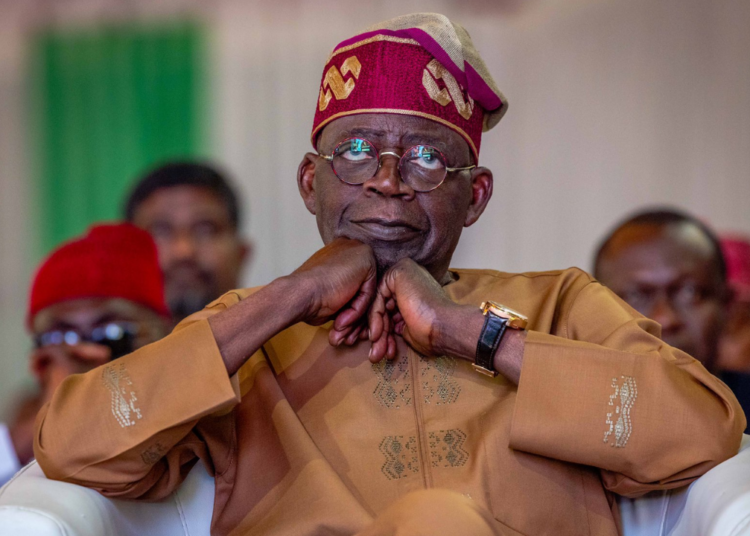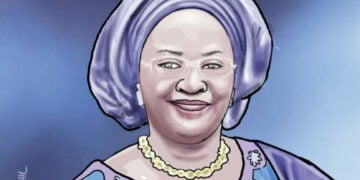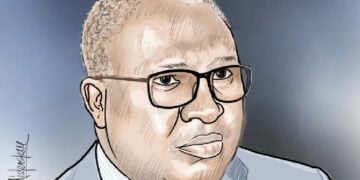It is either a mere assumption, exaggeration or a statement of fact that, considering the manner in which he effectively fought his way to become the Presidential Candidate of the All Progressives Congress (APC) and now President-elect of Nigeria, Asiwaju Bola Ahmed Tinubu is a kind of power-seeker who has tremendous courage and political discipline. His apparent capacity for planning and execution of a political or, perhaps, any other kind of project is already a solid basis of the growing confidence that he can, if he so wishes, add immeasurable value to the governance process in the country.
As the in-coming Nigeria’s President who once described himself as a kingmaker whose time to rule has come, Tinubu has imaginably started to show that he knows the scope and the intensity of the challenges that have come along with his recent electoral victory. As the date of the hand-over/take-over of government (29th of this month) speedily approaches, the president-elect is, by making statements that are assuring and weighty, quite consciously assuming the posture of a real leader.
Having been in the business of absolute power-brokerage for over a decade, he is widely rated as a well-equipped politician whose both connection with the various classes of Nigerians and understanding of the basic issues of the moment are solid and appreciable, the health-related constraints to which he is continuously associated notwithstanding.
His engagement with the various groups of Nigerians as president-elect in the forms of responses to demands, reactions to situations and comments on issues is an indication of the strong attachment that he has with the civil populace. He has, in fact, appeared to have both mastered the language and understood the demands of the downtrodden members of the society as a result of which he is increasingly seen as a leader who will strive to meet the aspirations of Nigerians.
By , for example, telling the Nigerian workers during the last commemoration of the International Day of Workers that “Your fight is my fight”, the president-elect has further strengthened the hope that he will unreservedly confront all those ugly realities that are a threat to the dignity of the ordinary citizens. His message on the occasion of the workers’ day was such that served as a reminder about his participation in most of the past struggles for the full attainment of the people’s democratic rights.
Meanwhile, the president-elect who was a Senator and later Governor of Lagos State must have, by now, taken an accurate census of all the projects and programmes that the out-going government will leave behind for him, which he will be duly expected to complete with or without modification. He must have, therefore, come to terms with the fact that the quantity of the unfinished works of the President Muhammadu Buhari administration is large enough to warrant the kind of approach that can guarantee meaningful execution.
Asiwaju Tinubu is, interestingly, one of the strongest pillars of the ruling All Progressives Congress (APC) who has the full knowledge of not only the promises made to Nigerians, but also all the policies of the out-going federal government on the basis of which projects and programmes were conceived in the last eight years. It is also reasonably believed that he has heard all the varying judgements that has so far been passed on all those works, which should enable him to come up with his own rating of the performance of the government.
Whether his own conclusion is a confirmation of the claim by the out-going government that laudable achievements have been recorded or not, the available details of the projects and programmes in terms of need, scope, cost and impact will readily guide government through the projects prioritization process. It is quite appropriate to assume that a thorough study and analysis of the unfinished works as well as the views of the beneficiaries will necessitate fundamental adjustment of the plan of the next government for the country.
Although in the course of the campaigns, the president-elect identified issues of utmost concern to the people and even made some specific promises with a clear emphasis on the manner in which he will address them, there is now a huge desire for him to spell out his strategies for the handling of all the ‘left-over jobs’ that he will inherit. In almost all the sectors or spheres of national life there are projects and programmes that await the attention of the in-coming government for them to become a reality.
Apart from, for example, the fight against insecurity and the anti-corruption war which have not yet yielded the desired results, there are other initiatives of the government like the cashless policy and the Abuja-Kaduna-Kano Gas Pipeline Project that are at varying stages. These and some other projects are always unhesitatingly presented by the out-going government as its key achievements, thereby making Nigerians to worry about them or, more precisely, the manner in which they will be handled by the Tinubu Administration.
It is also important to note that, in continuation of the discharge of his duties, President Muhammadu Buhari recently launched a plan known as Nigeria Agenda 2050 that is meant to raise the country’s Gross Domestic Product (GDP) by not less seven percent, create jobs for over 150 million people and significantly reduce the rate of poverty. The president’s description of the plan as a vision that predicates on knowledge of economic dynamics is basically a highlight of its importance to national development.
All those are plans that may look either new or complex or both to some ordinary citizens, but that are most likely quite comprehensible to the president-elect because of his participation, in one way or another, in the design and the execution of the activities of the APC government since 2015. This will definitely make either a total adoption or necessary modification of the approach to the governance of the country quite easy.
The next four years of the next government are a period in which confidence should be restored through the proper identification as well as immediate and full-blown execution of projects. Having experienced a prolonged malfunction of the government as a result of which they have noticeably suffered setback in their lives, Nigerians are now justifiably expecting the federal government under Asiwaju Bola Ahmed Tinubu to make up for all the several shortcomings of its immediate predecessor.





